Posted on 10/29/2025
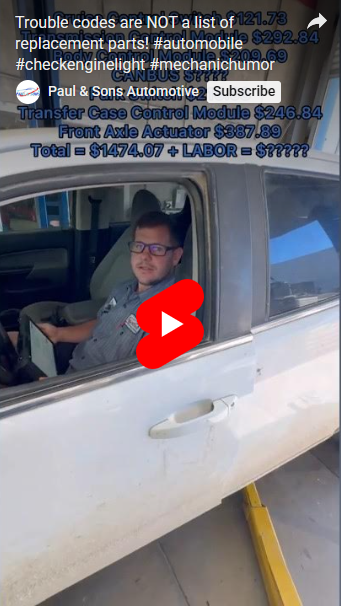
Even the best scan tools can only point you in the right direction — real diagnostics take experience, testing, and the right tools. 🔧 At A & L Tire, we don’t just replace parts based on a code — we find the root cause to make sure your vehicle is fixed right the first time
Posted on 7/29/2025
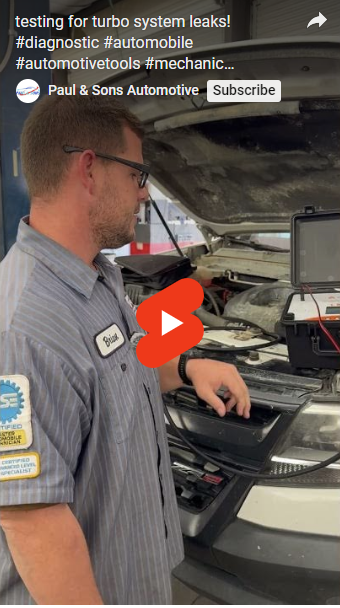
Smoke testing is a powerful diagnostic technique used in automotive repair, particularly effective in identifying leaks within turbocharged systems. In vehicles equipped with turbochargers, even the smallest leak in the intake, vacuum, or exhaust pathways can result in a significant drop in performance, turbo lag, overboost or underboost conditions, and poor fuel economy. This method involves introducing a dense, non-toxic smoke into the intake or vacuum system to visually trace the path of air and identify any unwanted escapes. When applied to turbocharged engines, smoke testing can reveal critical issues such as boost leaks at couplers, charge pipes, intercoolers, vacuum line cracks, or faulty gaskets. These leaks are often difficult to detect during normal operation because they may not cause immediate check engine lights or easily noticeable symptoms. By simulating engine operation without actual airflow or combustion, smoke testing allows technicians to pinpoint the location of a ... read more
Posted on 7/7/2025
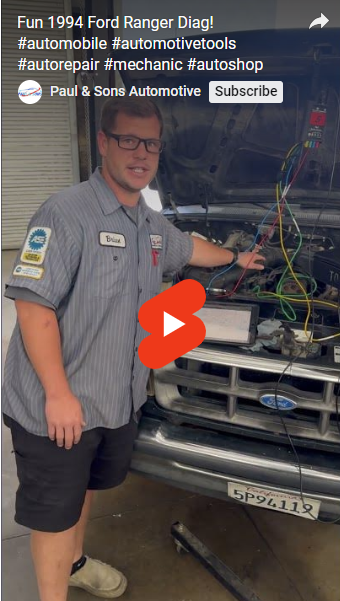
A four-channel oscilloscope is a powerful diagnostic tool used in the automotive industry to monitor and analyze electrical signals in real time. The "four-channel" part means it can measure and display four different signals simultaneously, which is especially useful in modern vehicles with complex electrical and electronic systems. Common Uses in Automotive Diagnostics: 1. Engine Performance AnalysisCamshaft and crankshaft sensors: Comparing timing signals to check for proper synchronization. Ignition systems: Monitoring primary and secondary ignition waveforms across multiple cylinders at once. 2. Fuel System DiagnosisInjector signals: Checking voltage and current draw of multiple fuel injectors for firing consistency. Fuel pump operation: Analyzing powe ... read more
Posted on 6/4/2025

The Engine Control Module (ECM) is essentially the brain of your truck’s engine. It manages and monitors various systems, ensuring optimal performance, fuel efficiency, and emissions control. From controlling the air-fuel mixture and ignition timing to overseeing idle speed and emission systems, the ECM plays a critical role in keeping your truck running smoothly. But like any electronic component, the ECM can develop issues over time. Common symptoms of a failing ECM include: Check Engine Light staying onEngine stalling or misfiringPoor fuel economyUnresponsive throttleHard starting or no start at allTransmission shifting problems (in ECM-integrated systems) Diagnosing a faulty ECM isn't always straightforward, as these symptoms can mimic other problems. A proper diagnosis often starts with a full scan of the onboard diagnostics (OBD) s ... read more
Posted on 5/12/2025
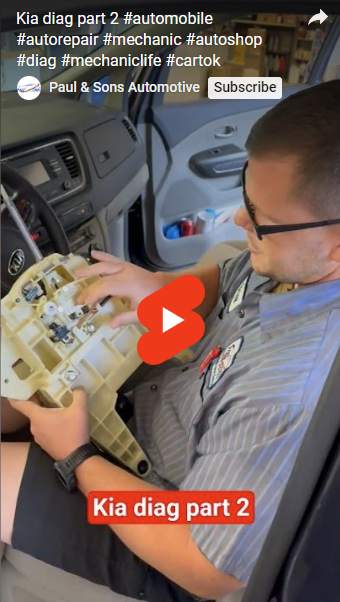
Common Wiring Issues to Watch For While fuses protect your vehicle, wiring issues can still cause trouble. Look out for: Flickering lights Non-functioning power windows or mirrors Burning smells or visible wire damage Repeated fuse blowouts (a sign of a deeper issue) If you notice these signs, it might be time to consult a professional or dig deeper into the wiring harnesses for potential shorts or corrosion
Posted on 5/5/2025
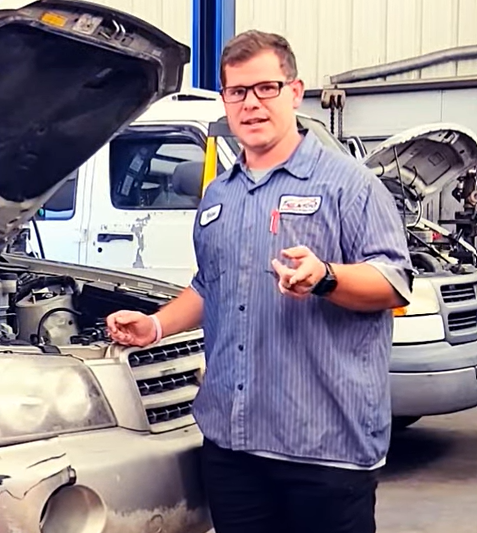
We don’t just read codes — we interpret real-time data, identify hidden issues, and provide accurate, dealer-level insights to save you time and money. Whether it’s a check engine light or a strange electrical glitch, we’ll pinpoint the problem fast. Service Includes: Full system scan Trouble code analysis Freeze frame & live data review Clear codes after repair Post-repair verification & test drive
Posted on 4/1/2025
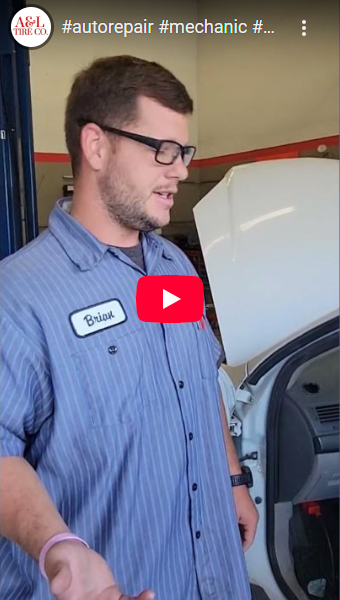
The check engine light (CEL) is a crucial indicator that your vehicle's onboard diagnostics system has detected a problem with one of its components. To properly diagnose and address the issue, mechanics and technicians use a variety of tools and follow specific processes. Here’s an overview of the tools and steps involved in diagnosing a check engine light: OBD-II Scanner (On-Board Diagnostics II): The first and most essential tool for diagnosing the check engine light is an OBD-II scanner. This device connects to the vehicle's OBD-II port (usually located under the dashboard near the driver's seat) and retrieves diagnostic trouble codes (DTCs) stored in the vehicle's computer system. These codes are alphanumeric, providing clues to the malfunctioning system or component. The scanner can also display real-time data such as engine performance, fuel efficiency, and sensor readings. Code Interpretation: Once the OBD-II scanner pulls the DTCs, the mechanic interpre ... read more
Posted on 4/1/2025
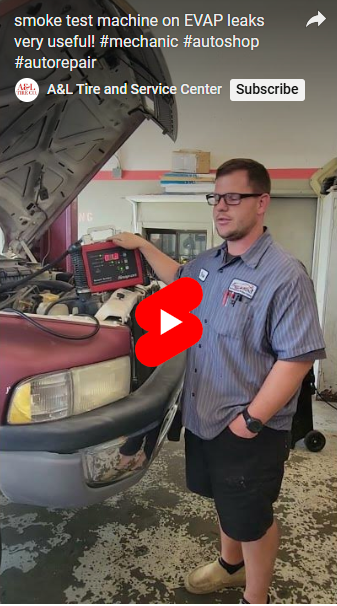
Evaporative (EVAP) leaks in a vehicle’s fuel system can lead to poor fuel efficiency and increased emissions. To detect these leaks, mechanics often use smoke machines, which generate a dense, harmless smoke that is pumped into the EVAP system. The smoke makes any leaks visible, allowing technicians to pinpoint the exact location of the issue and repair it effectively. This method is highly accurate and helps ensure the vehicle meets emission standards
Posted on 3/7/2025
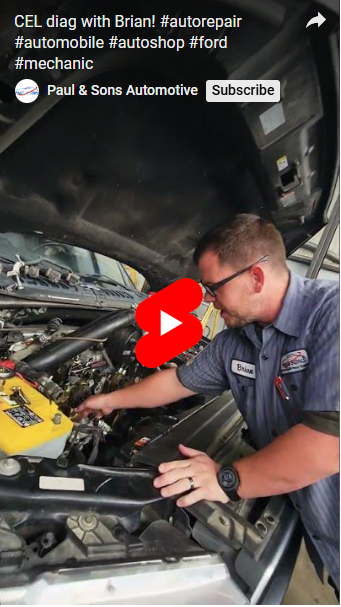
Timing chain issues in Ford 3.5L engines, particularly in models like the Ford Taurus, Explorer, and Edge, can lead to poor engine performance and costly repairs. Common problems include chain wear, slack, or tensioner failure, which can cause rattling noises, engine misfires, or even catastrophic engine failure if left unaddressed. Regular maintenance and timely inspection of the timing chain system are crucial to avoid these issues. Signs of a failing timing chain include engine noise at startup, rough idling, or poor acceleration. Replacing the timing chain and associated components early can prevent significant damage to the engine
Posted on 10/24/2024
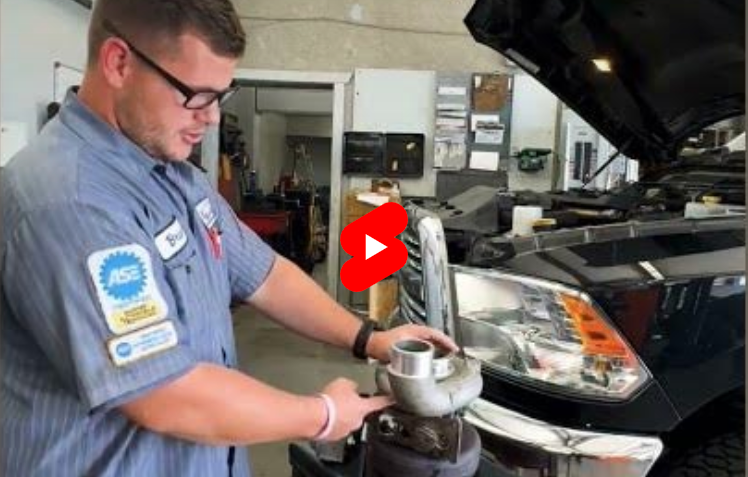
Loss of Power: Noticeable decrease in engine performance and acceleration. Excessive Exhaust Smoke: Blue or black smoke from the exhaust may indicate oil or fuel issues. Whining or Grinding Noises: Unusual sounds coming from the turbocharger, indicating wear or damage. Check Engine Light: Activation of the check engine light, often linked to turbo-related issues. Oil Leaks: Oil around the turbo area can suggest seal failure. Poor Fuel Economy: Decreased efficiency due to turbo malfunction